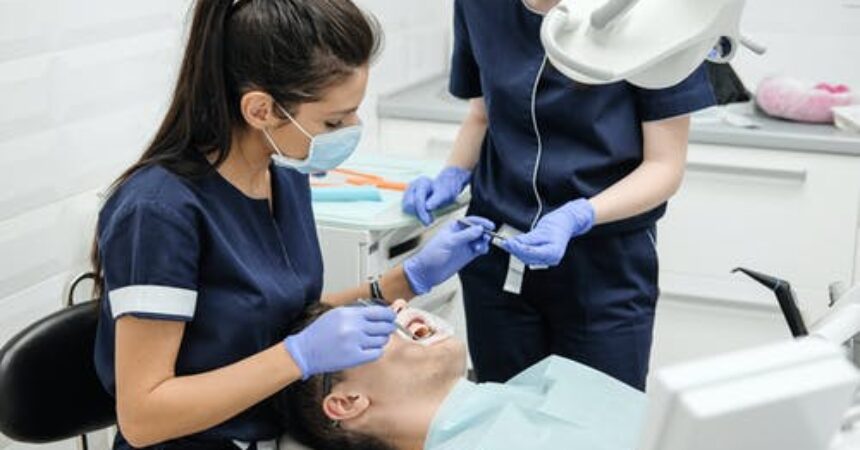Having had a dental emergency once, you will likely do whatever it takes to prevent oral illnesses. Similarly to medical emergencies, dental ones are best avoided if at all possible. Nonetheless, individuals who preserve regular oral checkups are less likely to experience dental emergencies.
Emergency Dental Care Situations
Although it may appear ideal to direct oral crises to an emergency oral office, the issue immediately arises, “What constitutes a dental emergency that requires a dental practitioner, and what constitutes an emergency that needs a visit to the emergency room?” Here are five frequent dental issues that necessitate seeing an emergency dental professional to help you decide:
Toothache
If you’re experiencing tooth discomfort, it’s essential to get to the main reason for what’s causing it. Pulp infections and food lodged between teeth are typical factors for painful toothaches. Seeing an emergency dental expert is vital if you experience abrupt, severe, or worsening tooth discomfort. In the meanwhile, a cool compress could assist in reducing any pain. For appointments, you may visit various emergency dental clinics, like emergency dental care in Elmhurst.
Fractures
Tooth damage can occur by biting down on something hard, utilizing one’s teeth for purposes other than biting and eating, or from an accident. Teeth chipped or cracked are more likely to happen to individuals who grind or clench their teeth. A visit to an emergency dental practitioner is required if you’ve broken a tooth or noticed a fracture in your tooth. If you lose a tooth, rinse it and put the pieces in a glass of milk or water until you can get to your emergency dental professionals or endodontic specialists.
Missing or Loose Teeth
Any facial injury leading to loosened or lost teeth requires urgent oral care. Keeping a loose tooth in its socket is essential, so it doesn’t get knocked out. You can bite down softly on the tooth to keep it in place. If a tooth is knocked out, it’s crucial to look for it. Once the crown has located the tooth, only the crown should touch it and rinse it. There are two ways to save a tooth that has been knocked out: either put it back where it came from and bite down on it as you would do replacement of missing teeth or utilize a dental implant. As a second benefit, it can be preserved in a glass of milk or water, just as damaged tooth pieces.
Tissue Damage
The lips, gums, insides of the cheeks, and tongue are all examples of soft tissues discovered in the mouth. In the event of damage to either of these structures, you should contact your emergency dental practitioner for further instructions. Visits to the emergency room and the dental practitioner on call may be needed. If you have suffered a soft-tissue injury like a cut, puncture, or tear, clean the area with warm water and apply pressure to the wound to stop the bleeding.
Denture Loss
Restorations, whether irreversible or temporary, can become dislodged or fall out. Both of them require immediate oral care. However, their restorations are different. The restorer should be brought in for a long-term fix. You can use something like denture adhesive, chapstick, or Vaseline to protect your temporary repair work until you can see your dentist.
In a Nutshell
Oral crises include teeth discomfort, broken, loose, or missing teeth, injuries to the gums or other soft tissues, and missing dental restorations. If your family member experiences any of the above oral emergencies, you should seek instant care from an emergency dental practitioner. While a trip to the hospital’s emergency room could be required for some injuries or illnesses, emergency hospitals typically send clients needing immediate dental care straight to a 24-hour dentistry clinic. Therefore, visit your nearest emergency dental center immediately to avoid more hassle.











